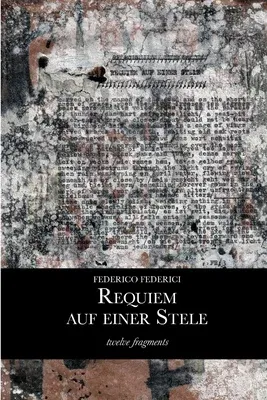Federico Federici
(Author)Requiem auf einer Stele (twelve fragments)Paperback, 15 October 2017

Qty
1
Turbo
Ships in 2 - 3 days
In Stock
Free Delivery
Cash on Delivery
15 Days
Free Returns
Secure Checkout
Print Length
34 pages
Language
English
Publisher
Lulu.com
Date Published
15 Oct 2017
ISBN-10
0244339805
ISBN-13
9780244339807
Description
Product Details
Author:
Book Format:
Paperback
Country of Origin:
US
Date Published:
15 October 2017
Dimensions:
22.86 x
15.24 x
0.2 cm
ISBN-10:
0244339805
ISBN-13:
9780244339807
Language:
English
Pages:
34
Publisher:
Weight:
63.5 gm

